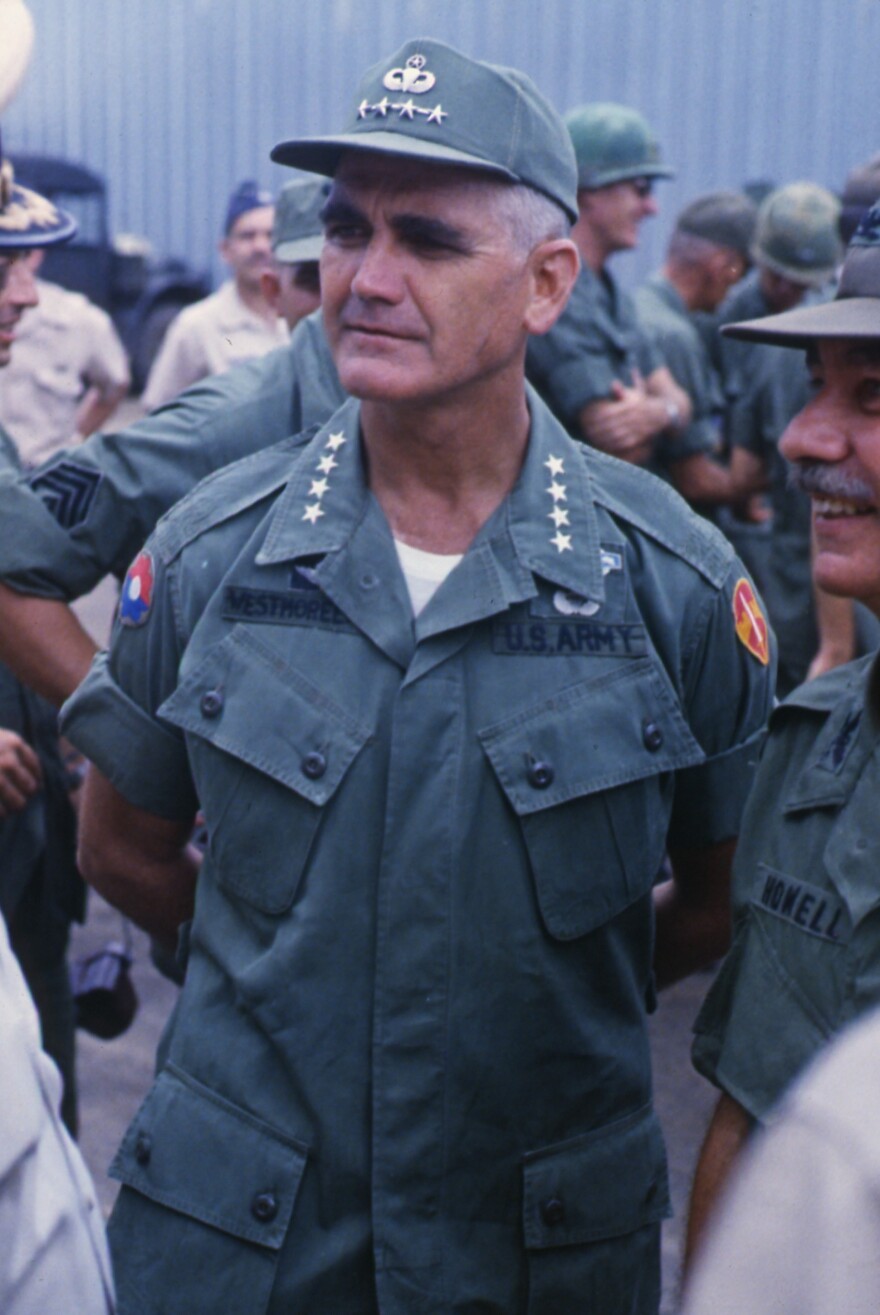As you’ve heard on NPR, President Trump announced plans this week to withdraw from a nuclear weapons treaty that President Ronald Reagan signed with the Soviet Union in 1987. One argument is that China is not party to the Intermediate Range Nuclear Forces Agreement, and, according to the New York Times, 95 percent of its rapidly growing arsenal of missiles falls into the intermediate range category. The U.S. may want to deploy equivalent missiles of its own to deter China, or to provide leverage for a new treaty, but it’s far from clear which, if any of the U.S. Allies in the western Pacific would agree to host them. In the meantime, there’s news of a previous effort to deploy U.S. nuclear weapons in the Asia-Pacific – in Vietnam in 1968.
In a new book, Presidents of War, Michael Beschloss discloses new details of an operation code named Fracture Jaw.
In January, 1968, the U.S. commander in Vietnam, General William Westmoreland became convinced that North Vietnam was about to launch a large scale assault on Khe Sanh, an American base near the demilitarized zone that then divided the country. If the situation grew desperate, Westmoreland wanted the option to use either tactical nukes or chemical agents.

He contacted Admiral Ulysses Sharp at Pacific Command in Hawaii and he assigned subordinates to figure out the logistics. Where the weapons would come from, how to move them, where to base them and how they might be delivered. All of this was done without the knowledge of President Lyndon Johnson, whose reaction is described as furious.
On February 12, Admiral Sharp directed General Westmoreland to “immediately discontinue all planning for Fracture Jaw” and take steps to ensure that no hint of the operation ever became public.
The North Vietnamese did attack Khe Sanh; obsessed by what developed into one of the bloodiest battles of the war, General Westmoreland was slow to react to a series of strikes all across South Vietnam at the same time. What became known as the Tet Offensive marked a turning point in American support for the war.




